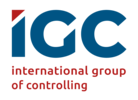Standards
The IGC dictionary has been published in its 4th edition. It serves practitioners (Controllers and managers) as well as students as reference book for the most important technical terms. It is written bilingual: German/English as well as English/German and has a bilingual index as the reference page numbers are not always the same in German and in English.
The Dictionary for Controllers has been published by the publishing house Schäffer-Poeschel, Stuttgart, Germany.
ISBN:978-3-7910-2911-5
540 pages / 29.95 EUR
>> Excerpt (de)
>> Buy
The dictionary for Controllers is also available in the following languages:
Polish, Russian, Slowenian, Hungarian, Czech, Croatian.
In recent years numerous non-profit organizations (NPOs) have made considerable improvements in the planning and control of their organizations. Operational management has evolved significantly with respect to instruments used and management effectiveness. Today, management is considered more generally as target-oriented decision-making beyond making profits. Thus, the contradiction between NPOs and management no longer exists. The IGC work group headed by Professor Bernd Halfar provides in this publication a guideline to impact-oriented and results-based controlling in NPOs. Objective setting, making objectives measureable and clear, and strategic decision making as a starting point for any controller in NPOs is the focus of the publication. Through consistent objectives controllers are able to measure and control the effects of management decisions. For this purpose a new and unique "spider model" was developed. The model is intended to make the complexity of goal setting, planning and control with regard to the variety of stakeholders in NPOs clearer in order to deal with this complexity even more successfully in everyday practice.
The book Results-based NPO-Controlling (Editor: International Group of Controlling) is published by Haufe Verlag, Freiburg only in German. ISBN: 978-3-648-00582-8. Retail price: 24,80 EUR (excl. Shipping costs)
